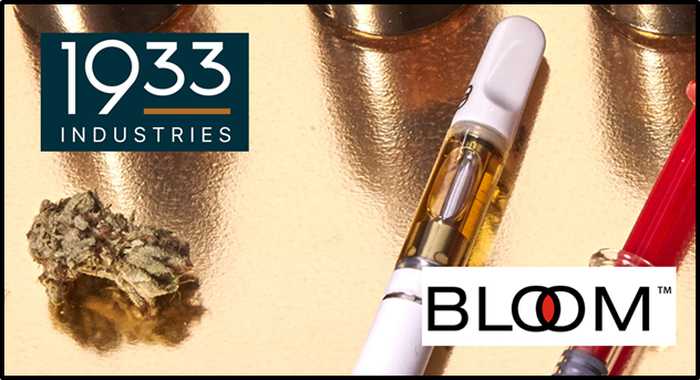Cannabis investors exhibit the same psychological characteristics as Dutch teenagers, a “volatile mix of anxiety, irritability, exuberance and despair.”
With teenagers, the irrational mood swings are due to “stress points around the uneasy transition toward adulthood.”
Cannabis investors don’t have this excuse.
We are already adults – or some reasonable facsimile.
Our Achilles heel is evolutionary in origin.
We collectively behave like a herd of gazelles – the safest spot right in the middle, jostled pleasantly by our peers. To wander away from the herd is to be vulnerable to predators.
In fact, for retail investors, the opposite is true.
“Group-think” generally leads to disaster.
Two years ago, investors were buying anything and everything with the name “cannabis” in it. On January 19, 2018 Equity Guru owner, Chris Parry warned investors it was time to separate from the herd.
Parry focused on two overbought stocks: Aurora (ACB.T) which was then trading at $14.50, and is now trading at $2.47, and Namaste (N.V) which was then trading at $3.02, and is now trading at .35.
Some cannabis investors heeded Parry’s advice.
Many didn’t.
Since then, the herd screeched to a halt – pirouetted – then charged in a mad panic in the opposite direction.
Many of these cannabis companies deserved the shit-kicking they got.
But some good weed companies – run by adults – have been trampled in this reverse stampede to sell-all-things-cannabis.
Case in point: 1933 Industries (TGIF.C) owns cannabis cultivation, extraction, processing and manufacturing assets, along with a portfolio of brands including: AMA flower and AMA concentrates, CBD-infused Canna Hemp, Canna Hemp X, and Canna Fused.
On April Fool’s Day, 2019, TGIF was trading at .60.
It’s now trading at .20.
1933 has a “strong balance sheet with a cash position of $17.6 million,” reported Parry on November 28, 2019, “a robust increase of 245% over the previous year of $5.1 million, allows the Company to fund capital projects, service its debenture payments and continue to grow its operations.”
Other highlights:
Working capital was $22.5 million, compared to $11.0 million at July 31, 2018, representing an increase of 105%
44% year over year increase in revenue, totaling $18.1 million, with a gross margin of $5.3 million.
1933 has a market cap of $58 million.
The market cap is 3X the yearly revenue.
And no, the company is not profitable.
Net loss for the year is $19.1 million of which, $5.0 million is attributed to a one-time non-cash impairment write-down of a non-performing subsidiary, $3.4 million in biomass purchases, non-cash share-based compensation of $2.2 million, $1.5 million in interest payments, a one-time non-cash loss on disposal of property and equipment of $1.9 million and a non-cash accretion expense of $1.2 million.
According to the CEO, Chris Rebentisch, profitability is not a dot on a distant horizon:
On January 9, 2020, 1933 announced that its subsidiary, Alternative Medicine Association, entered into a licensing agreement with Capna Intellectual, developer of The Bloom Brand.
Established in California in 2014, Bloom is now sold in over 300 licensed retailers in California, Nevada, Washington and New Mexico, with further expansion planned for new markets in Oklahoma, Massachusetts and Canada.
“Our goal is to expand beyond our proprietary AMA products and represent the very best cannabis brands in Nevada,” stated Ester Vigil, President of 1933 Industries, “Bloom is a brand we have been watching for some time”.
Cannabis demand in Nevada is powered by the state’s 46 million annual tourists. Some tourists may come to visit the Nevada Museum of Art – but most come to party their asses off.
This fiscal year Nevada’s cannabis industry generated more than $100 million in TAX revenue, collected from dispensaries, cultivators, laboratories and producers.
Bloom licensed products include:
- Bloom Vape — original vapour method available in a 500-milligram cartridge;
- Bloom One — disposable vapour method providing the same flavourful experience in a smaller, 350 mg preloaded, disposable package;
- Bloom Dart — pod vapour method includes CCELL’s advanced ceramic heating elements for greater oil absorption;
- Bloom Drop — oil infusion method comes with 800 mg of oil with preactivated THC. The oil can be added to flower, dabs or for infusing food for instant effects;
- Bloom Kit — pocket-sized vape battery for Bloom cartridges, featuring a sleek buttonless design, which activates as one inhales;
- Bloom products do not contain any additives, PG, VG, or vitamin E acetate.
The Canadian cannabis industry was “challenged with inflated financial forecasts, oversupply of low-quality product and delayed licensing of retail outlets to drive sales,” stated new Experion CEO Jarrett Malnarick, “investors and financers lost confidence in the cannabis sector.”
Contrarian investing involves buying and selling stocks against the grain of investor sentiment.
The concept is simple: If you purchase stocks when investors are gloomy, and sell the same stocks when your investing peers are euphoric, you will make out like a bandit.
In January 2020, most cannabis investors feel gloomy.
This is a signal for optimism.
Full Disclosure: 1933 Industries is an Equity Guru marketing client.









